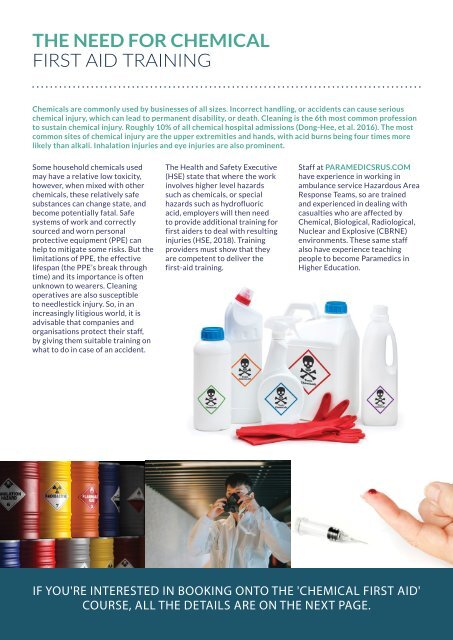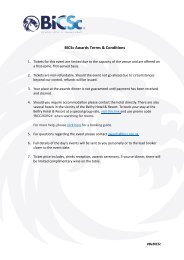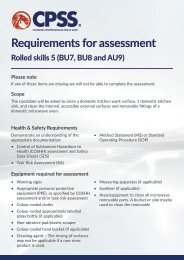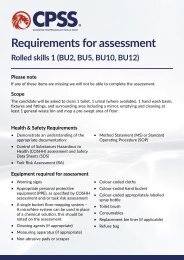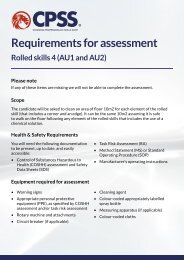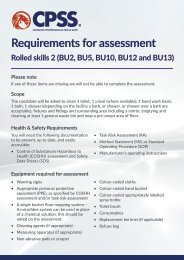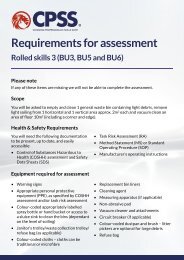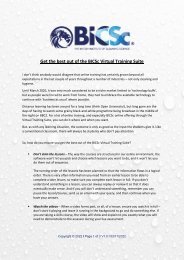The Standard Issue 4 2022
Create successful ePaper yourself
Turn your PDF publications into a flip-book with our unique Google optimized e-Paper software.
THE NEED FOR CHEMICAL<br />
FIRST AID TRAINING<br />
Chemicals are commonly used by businesses of all sizes. Incorrect handling, or accidents can cause serious<br />
chemical injury, which can lead to permanent disability, or death. Cleaning is the 6th most common profession<br />
to sustain chemical injury. Roughly 10% of all chemical hospital admissions (Dong-Hee, et al. 2016). <strong>The</strong> most<br />
common sites of chemical injury are the upper extremities and hands, with acid burns being four times more<br />
likely than alkali. Inhalation injuries and eye injuries are also prominent.<br />
Some household chemicals used<br />
may have a relative low toxicity,<br />
however, when mixed with other<br />
chemicals, these relatively safe<br />
substances can change state, and<br />
become potentially fatal. Safe<br />
systems of work and correctly<br />
sourced and worn personal<br />
protective equipment (PPE) can<br />
help to mitigate some risks. But the<br />
limitations of PPE, the effective<br />
lifespan (the PPE’s break through<br />
time) and its importance is often<br />
unknown to wearers. Cleaning<br />
operatives are also susceptible<br />
to needlestick injury. So, in an<br />
increasingly litigious world, it is<br />
advisable that companies and<br />
organisations protect their staff,<br />
by giving them suitable training on<br />
what to do in case of an accident.<br />
<strong>The</strong> Health and Safety Executive<br />
(HSE) state that where the work<br />
involves higher level hazards<br />
such as chemicals, or special<br />
hazards such as hydrofluoric<br />
acid, employers will then need<br />
to provide additional training for<br />
first aiders to deal with resulting<br />
injuries (HSE, 2018). Training<br />
providers must show that they<br />
are competent to deliver the<br />
first-aid training.<br />
Staff at PARAMEDICSRUS.COM<br />
have experience in working in<br />
ambulance service Hazardous Area<br />
Response Teams, so are trained<br />
and experienced in dealing with<br />
casualties who are affected by<br />
Chemical, Biological, Radiological,<br />
Nuclear and Explosive (CBRNE)<br />
environments. <strong>The</strong>se same staff<br />
also have experience teaching<br />
people to become Paramedics in<br />
Higher Education.<br />
IF YOU'RE INTERESTED IN BOOKING ONTO THE 'CHEMICAL FIRST AID'<br />
COURSE, ALL THE DETAILS ARE ON THE NEXT PAGE.


